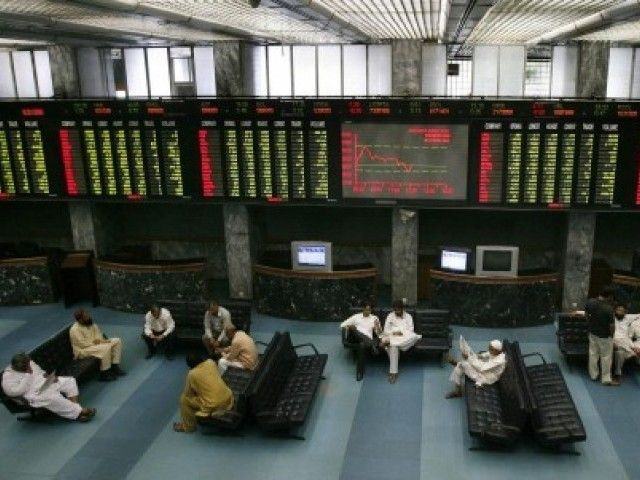Karachi: A Flourishing Stock Market In A Blood-Soaked Pakistani City Spiraling Out Of Control

Karachi, a teeming metropolis of some 18 million people on the coast of the Arabian Sea, embodies everything that is wrong with Pakistan – it is overcrowded, chaotic, corrupt and filled with violence and chronic power shortages.
However, Karachi also boasts one of the world’s best-performing stock markets – the Karachi Stock Exchange (KSE) racked up a 49 percent return in 2012, making it one of the best-performing bourses in the world that year.
Year-to-date, the KSE has jumped more than 10 percent, partly on hopes that the May general election will witness the first time in Pakistani history that one democratically elected civilian government peacefully transitions to the next.
Over the past four years, KSE has climbed more than 300 percent in value. Reuters reported that the exchange is now seeking a foreign partner to purchase a stake.
"Pakistan has a lot to offer investors and this is our chance to show it," Nadeem Naqvi, KSE’s chairman, told Reuters.
Naqvi plans to speak to potential foreign business partners in the U.K., Germany and Hong Kong over the next few months.
As a “frontier market,” that is, less developed than an “emerging market” like neighboring colossus India, Pakistan might attract some foreign investors seeking outsized returns. The KSE still boasts a very moderate P/E ratio of 8.50, despite recent extraordinary gains.
Of course, this being Pakistan – a nation where the rich do not pay any taxes and regulatory oversight is at best shoddy – the exchange is not the NYSE.
It is quite illiquid, which makes it easy to manipulate – the KSE’s total market cap is only about $41.5 billion, less than one-tenth the size of the Bombay stock exchange. (The NYSE has a market cap in excess of $16 trillion.)
In addition, Reuters speculates, last year’s huge gains in the Karachi market may be partly attributed to rules allowing the participation of “black money” (i.e, funds of unknown or dubious origin) into the equity markets. Indeed, the average daily volume on KSE more than doubled last year -- no doubt, a result of millions of rupees of black money (presumably from corrupt politicians and criminal organizations) flowing into the bourse.
The United Nations Office on Drug and Crime estimated that Pakistan's informal or "black" economy may be as big as $34 billion, one-fifth the size of the formal, that is, the “real” economy.
"Politics and dirty money go hand-in-hand in Pakistan," said Ikramul Haq, a Supreme Court lawyer and tax law professor.
"People want to be outside the regulatory framework and outside the tax net."
Ashraf Tiwana, the former head of the legal department at The Securities and Exchange Commission of Pakistan (SECP) who lost his job over conflicts with his ex-bosses over his probes into fraud, said incidents of insider trading and other acts of malfeasance are widespread in the system.
"There's a lot of fraud, a lot of market manipulation ... but not enough action has been taken, especially not enough criminal action has been taken," he told Reuters.
"They're just passing small fines and giving out warning letters."
Tiwana has called for the removal of top regulators and the SECP commissioner, charging they are too close to the exchange and leading brokers.
Meanwhile, outside the walls of the exchange the seemingly endless violence engulfing Karachi continues without mercy.
According to the Human Rights Commission of Pakistan, almost 2,300 people were killed in Karachi in 2012. So far this year, at least 500 people have died in violent attacks.
Last week, four paramilitary rangers were killed by a grenade on the east side of Karachi.
“A permeating sense of instability has only worsened a deteriorating economic crisis, both of which are stark reminders of the failure of the government and security apparatus to maintain law and order in a city that promises to spiral out of control,” wrote Arsla Jawaid in Foreign Policy.
“In light of upcoming elections, it seems likely that the violence will continue to increase.”
The kaleidoscope of murder in Karachi encompasses a wide spectrum of human depravity – from sectarian killings (Sunni Muslim against Shia) to terrorist attacks to organized criminal activity to battles between different political factions to plain old bloodlust.
In one day alone in early March, more than 50 people were killed and 200 injured in a huge bombing in Abbas Town, a Shia neighborhood of Karachi.
The situation has become so bad that senior officials of the Karachi police department admit that their members are demoralized by the endless tide of killings.
http://afpak.foreignpolicy.com/posts/2013/04/09/failed_city_karachis_violent_spiral
© Copyright IBTimes 2024. All rights reserved.




















